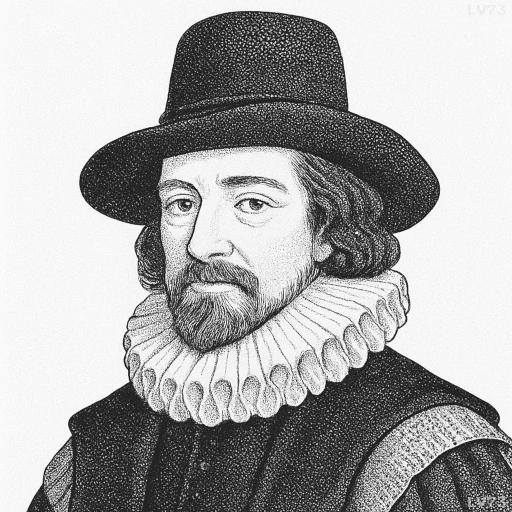“There is no excellent beauty that hath not some strangeness in the proportion.”

- January 22, 1561 – April 9, 1626
- Born in England
- Philosopher, theologian, jurist, politician, aristocrat
table of contents
Quote
“There is no excellent beauty that hath not some strangeness in the proportion.”
Explanation
In this quote, Francis Bacon suggests that true beauty often involves an element of the unexpected or unusual. He argues that what makes something beautiful or exceptional is not simply its symmetry or conventional perfection, but rather a certain irregularity or uniqueness in its proportions. This “strangeness” gives the object or person an intriguing character or appeal, making it stand out and be memorable. Bacon’s insight implies that beauty is not about adhering strictly to traditional or idealized forms but about embracing individuality and imperfection. It’s the contrast or unexpected qualities that often make something truly beautiful and compelling.
Bacon’s view reflects the Renaissance exploration of beauty and art, during which artists and thinkers began to question classical ideals of perfect symmetry and explore more dynamic, diverse forms of beauty. The period saw a rise in artistic experimentation, where non-traditional beauty was valued, from the distorted forms of Mannerist art to the more varied expressions of the human body and nature in works by artists like Leonardo da Vinci and Michelangelo. Bacon, a philosopher of his time, recognized that the true essence of beauty often lies in what is different and unexpected, challenging the idea that beauty must conform to strict rules.
In modern times, this quote resonates in the world of art, design, and aesthetics, where imperfection and individuality are increasingly celebrated. The idea that strangeness can be an essential component of beauty is echoed in contemporary movements like abstract art, avant-garde fashion, and even the beauty industry, where diverse, non-traditional standards of beauty are becoming more widely accepted. Bacon’s insight encourages us to see beauty as something that can be found in the unexpected, unique, or even flawed, and reminds us that perfection, in the classical sense, is not the only path to excellence.
Would you like to share your impressions or related stories about this quote in the comments section?


